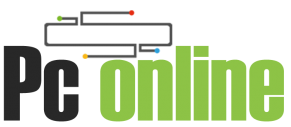Are you involved in software development either as the owner or developer? Then you must pay attention to intellectual property rights’ nitty-gritty. That includes laws and patent development. It is a vast subject that may be difficult to narrow down. However, there are key areas that every developer must focus on.
Independent entrepreneurs focus on developing their products and newcomers to the industry; here are five things you must know.
- Trademarks
To ensure you’ve legal protection for your brand, you need to register your trademark. It protects your name, images, domain, and all that is related to design.
When developing any software, you must have in place the protection mechanism that will ensure your brand is protected, especially if you are partnering with someone.
You, therefore, need a contemporary understanding of how trademarks work. That knowledge will make you aware of other individuals’ rights and responsibilities that you may end up partnering with.
- Open source agreements
Open source code and other realms of purposefully shareable intellectual property can be tricky. Here, you need to know the software is copyrighted, and any developer must use it as per the specifics of the license.
There are also open-source licenses that you can use if you release finished work as an open-source. Then, users of the software are granted permission depending on their licenses.
However, if you’re creating a software program to end up on an open-source platform, then you can choose to abide by the licensing rules or not.
- Owner vs. author
In the case of open-source software, determining ownership can be complicated. But when it comes to employee-employer relationship, the employee can develop but cannot own.
The employer always has the copyright, and that remains so no matter the role the developer plays. Again, if the developer is an independent contractor, they may be considered the owner unless there is a contract that outlines their terms.
- Trade secrets
If, as a developer, you have a valuable and highly original idea, you may feel more comfortable keeping it a secret. Here, you’ve full control over the source code, and thus you don’t have to be scared of anyone.
The protection program includes password protection, confidentiality agreements, and such. The secrecy of the trade secrets continues to get complicated as time goes by, and this depends mainly on the size of the team. But you’ll need a reliable and waterproof software anti piracy policy to help you navigate and keep off unauthorized access.
- Patents
You can get a patent on your software, and most of these will last for 20 years. Patents are only possible if the software invention or its algorithm is original. Patents will also require that you make its details public.
In essence, as a developer, you’ll need to understand the rights related to a partnership employment scenario before you enter into a work agreement to develop a unique product line.
Any agreement you make with any party should be on a contract and should have terms and conditions clearly outlined.


